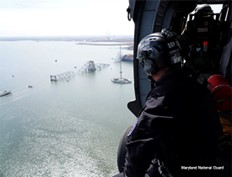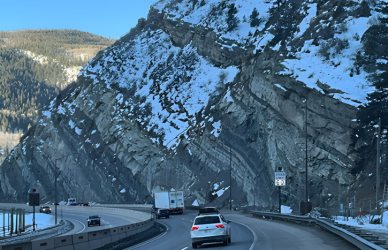In the aftermath of the collapse of the Francis Scott Key Bridge in Baltimore, the Owner-Operator Independent Drivers Association (OOIDA) has initiated contact with federal, state, and local agencies. They aim to extend any assistance within their capacity to address the situation.
“Mainly, we’ve been speaking with federal agencies, but also some local and state as well,” said Lewie Pugh, OOIDA executive vice president. “We’ve been trying to help with the routing and suggested alternate routes for trucks like across the Bay Bridge on U.S. Highway 50 and up 301.”
As noted by Pugh, expediting traffic through alternative measures has emerged in discussions with authorities. This suggests a collaborative effort to mitigate the impact of the bridge collapse on traffic flow and logistical operations.
“We’ve discussed the waiving of the tolls on the bridges and even at the tunnels to try and let traffic move through quicker,” Pugh said. “The extension of hours of service under adverse conditions doesn’t usually include traffic because you know when there’s going to be bad traffic. But we have no idea how long this is going to take with so much traffic going to these other arteries of the city.”
Pugh has proposed a potential solution to alleviate pressure on truckers who are trying to navigate the disrupted transportation routes. He suggests granting truckers an additional two-hour window as an exemption.
Source: Freightwaves
Photo: Maryland National Guard











